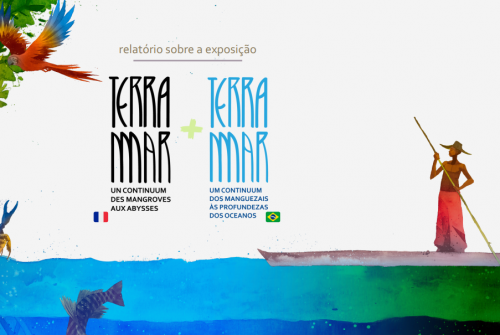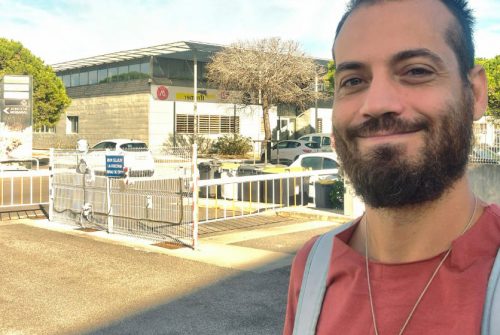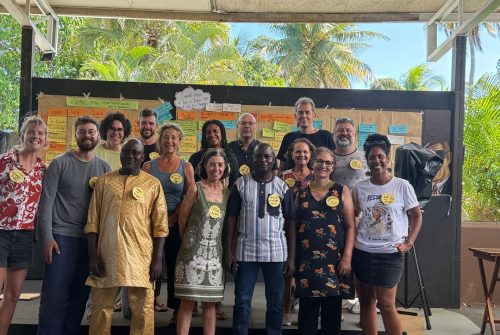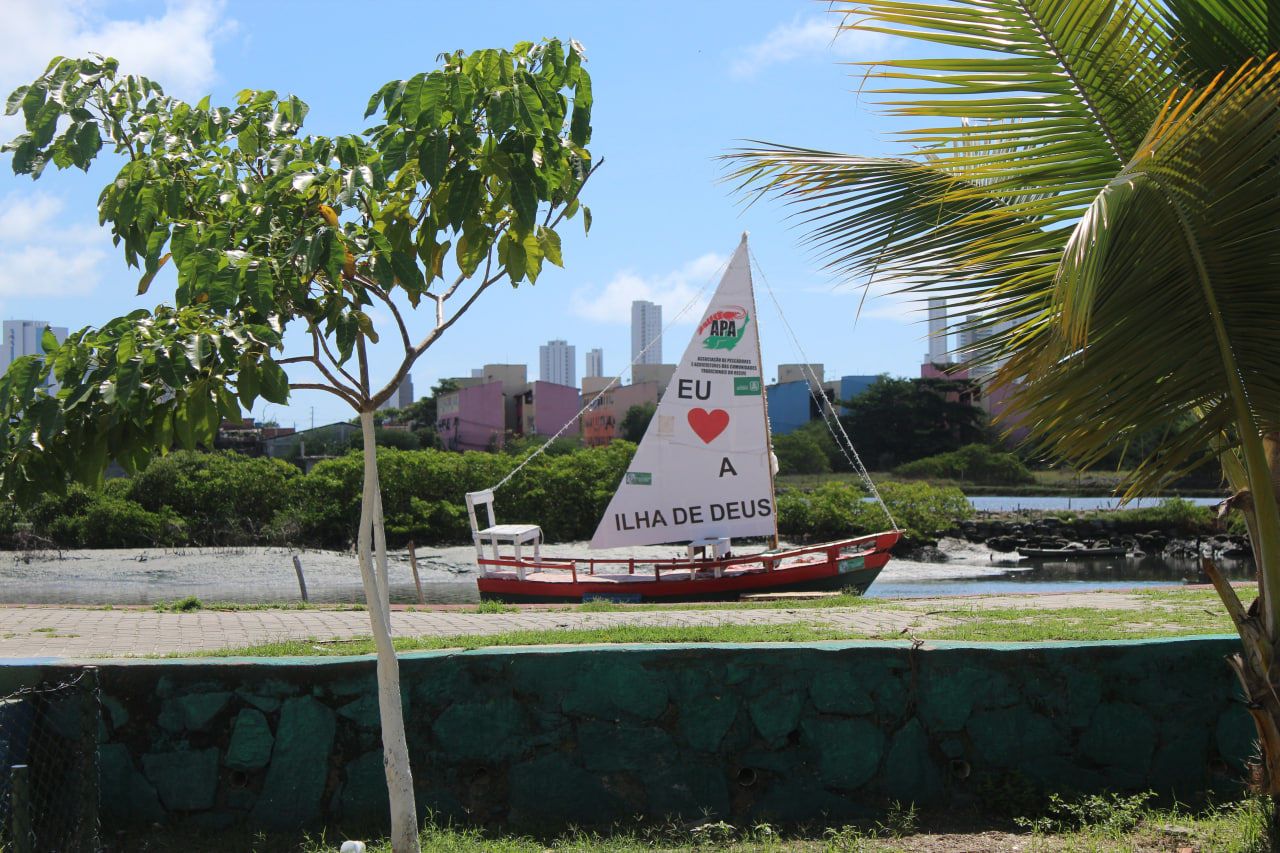
COLÔNIA Z07 IN RIO FORMOSO DEMYSTIFIES THE LACK OF FISH AND INVESTS IN SUSTAINABILITY
Rio Formoso, PE – July 27, 2025 – Tradition and science came together at a meeting on participatory coastal management. The meeting brought together fishermen, researchers, and representatives from the company Neoenergia in a productive dialogue on sustainability, technology, and fishermen’s health.
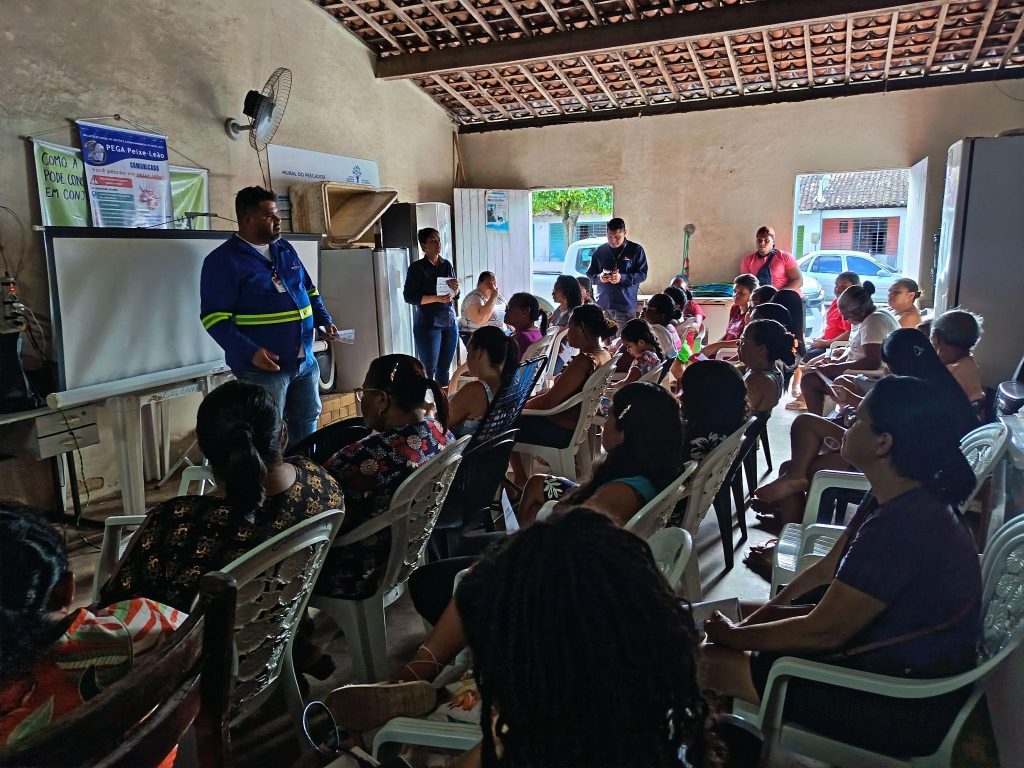
Conflicts and challenges faced by fishermen in the creation of RESEX
The tension surrounding the creation of the RESEX (Extractive Reserve) was addressed with concern. “We are facing resistance from groups with opposing interests,” reported Dona Cícera, current president of Colônia Z07, which has the support of the Conselho Pastoral dos Pescadores (CPP) as an important ally in the fight for the creation of the RESEX, in addition to other partners.
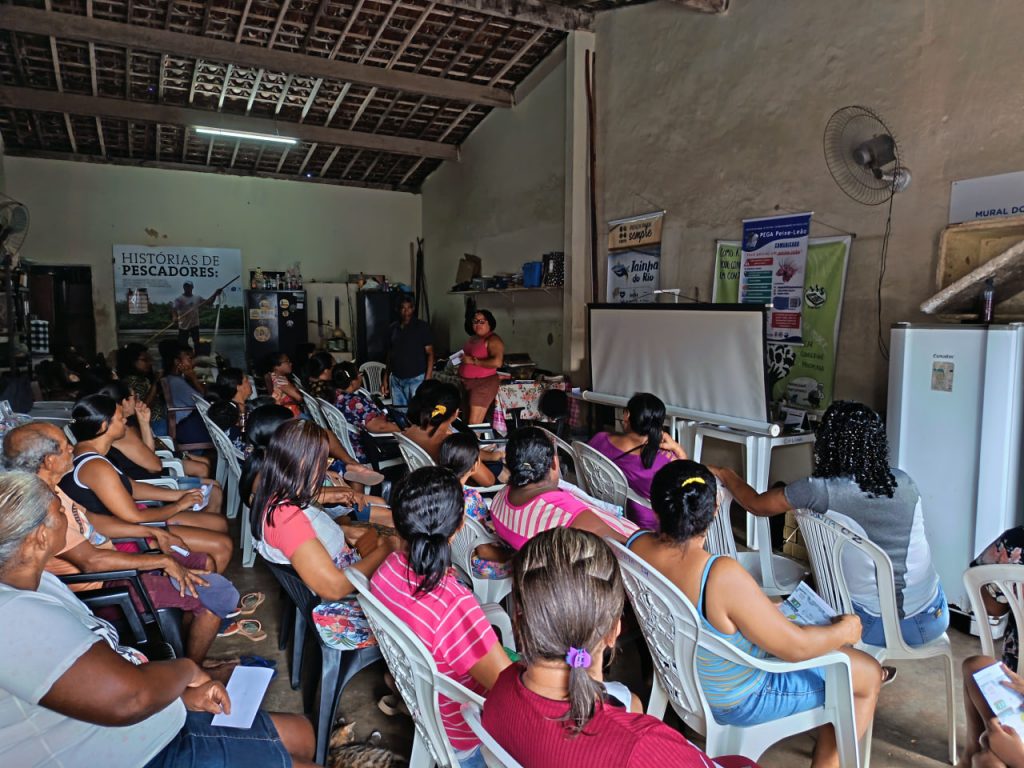
While part of the population believes that the region no longer produces fish, Cícera presented figures collected in partnership with universities that show a different reality. “We recorded catches of 50 kg of mullet and 40 kg of carapeba in a single day of fishing,” she revealed, based on censuses developed with researchers from the Federal Rural University of Pernambuco (UFRPE) and the Federal University of Pernambuco (UFPE).
Francisco de Santana, a fisherman and boat builder in the region, known as Mr. Chico, one of the event organizers, was emphatic:
“Fishermen who also work in tourism alternate between activities depending on the season. People who work in tourism practice fishing when tourism is slow.”
Francisco de Santana
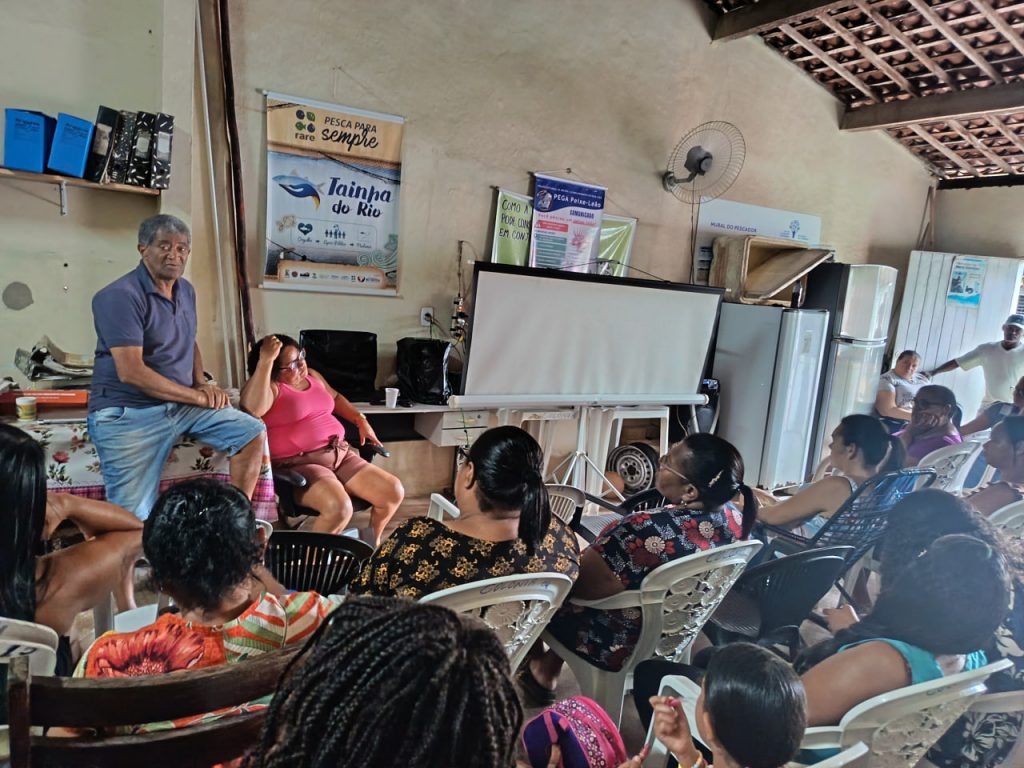
The meeting also highlighted the importance of using social media wisely as a tool for empowerment. “We need to showcase our work on digital platforms,” argued Mr. Chico and Karla Albuquerque, fishermen from the Colony.
“This generates important visibility for our activities and serves to defend our rights.”
Mr. Chico and Karla Albuquerque
Between fishing nets and meals: the struggle for health and food sovereignty on Ilha de Deus
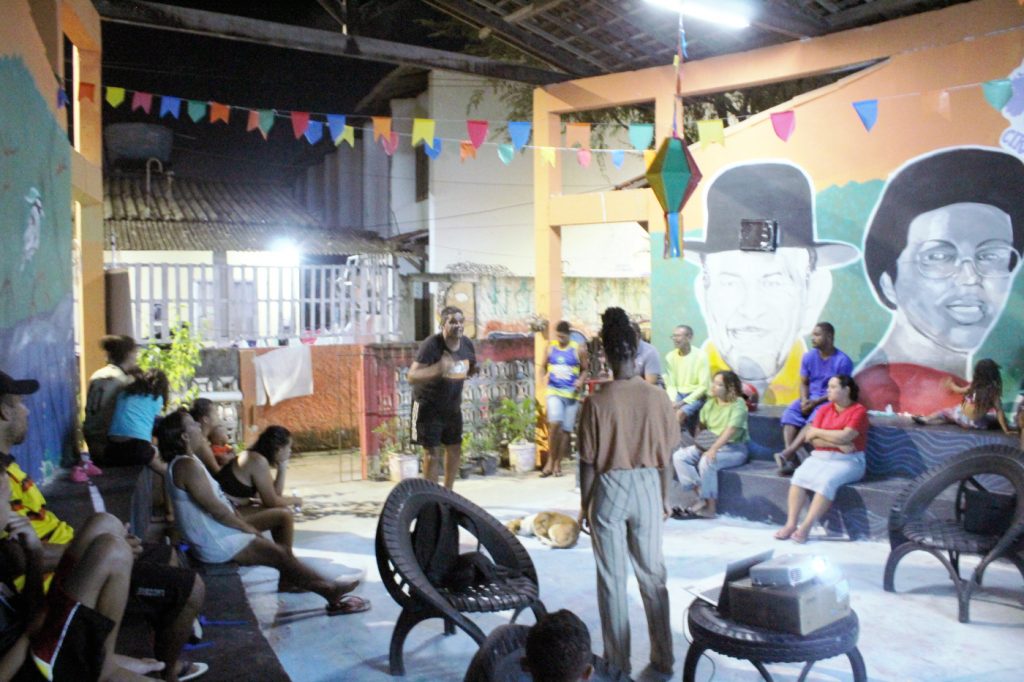
Recife, August 11, 2025 – On the headquarters of the NGO Caranguejo Uçá, a reference on Ilha de Deus, hosted a roundtable discussion organized in partnership with the TAPIOCA research group. The meeting aimed to present preliminary results from interviews conducted with fishermen in the community, continuing the research work “Participatory Coastal Management” that began in Rio Formoso.
The central theme was the perception of the risks of the artisanal fishing profession and the solutions proposed by the workers themselves to address them. During the dialogue, fishermen and NGO members emphasized the importance of bringing these results to the attention of public managers and incorporating them into decision-making processes that directly affect artisanal fishing.
The event was attended by nutritionists from the Qualinutri Consultoria group, who held consultations with the fishermen. One of the issues raised was the excessive consumption of fried foods, identified as an additional health risk factor for the community.
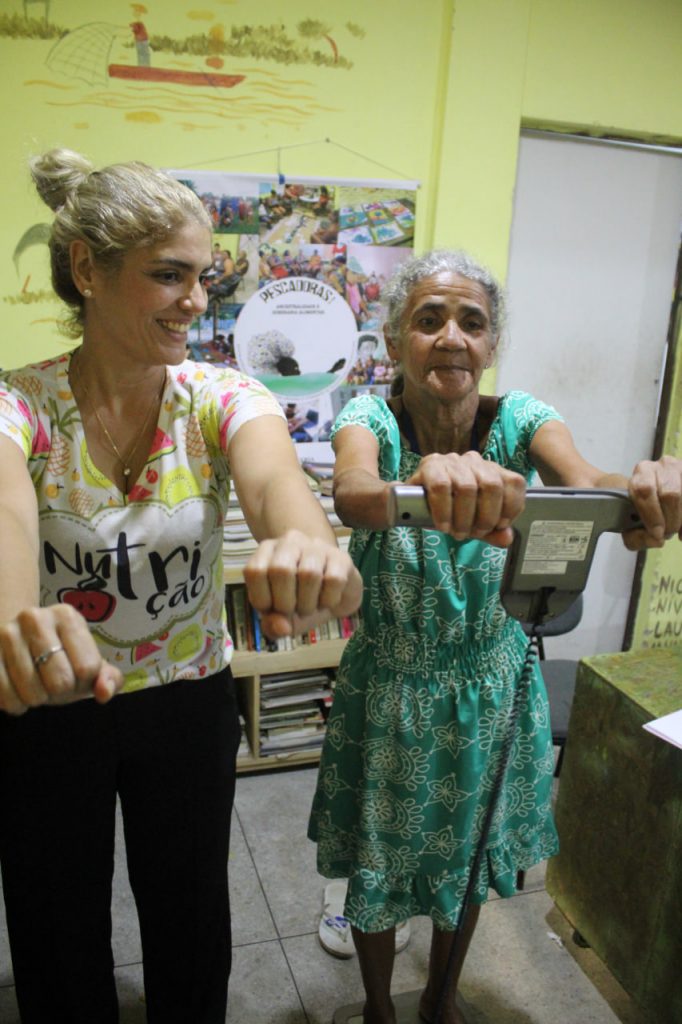
“This accumulation of fried foods increases calories, visceral fat, and cholesterol,” warns one of the nutritionists present. The medical recommendation is clear: a maximum of two fried foods per month. On Ilha de Deus, this frequency is exceeded eightfold.
Qualinutri Consultoria
The activity combined presentations and open debate, strengthening the exchange between science and traditional knowledge. At the end, there was a prize draw for personal protective equipment kits (UV shirts, sunscreen, and boots) to encourage safer practices in everyday fishing activities.
Institutional negligence and memory of collapse
“Quantifying how many fishermen there are in Recife is an urgent necessity.”
Edson Fly
Edson Fly, from Caranguejo Uçá, points out another aspect of the crisis: “Quantifying how many fishermen there are in Recife is an urgent necessity.” Without official data, public policies are blind. Reports are multiplying: injured fishermen being neglected at health clinics, lack of closed seasons for key species such as sururu, and the looming threat of privatization of fishing areas.
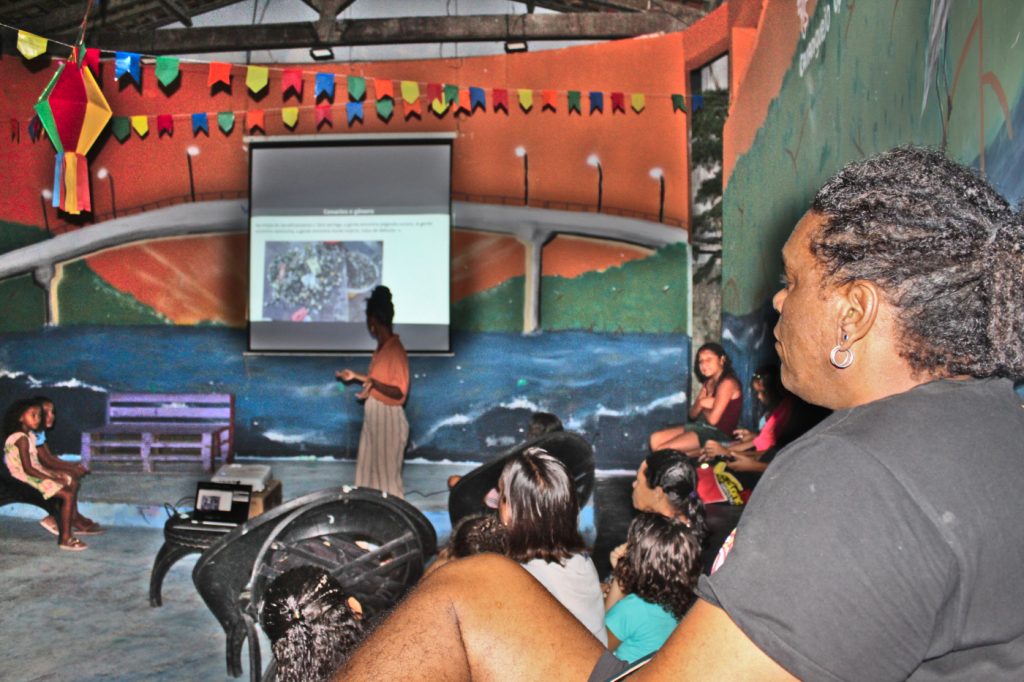
Fly recalls the severe shortages of 1982 and 1992, when the disappearance of fish forced the community to reinvent itself: “I fear we will go through this again.
” Pollution, climate change, and the lack of enforcement of artisanal fishing laws create a “perfect storm.”
Edson Fly
Among the concrete proposals discussed are:
- Development of alternative cooking techniques with community participation;
- Campaigns on better hygiene for fruit and vegetables;
- Participation in joint calls for proposals among fishermen, public authorities, and research institutions;
- Use of protective kits (sunscreen, UV shirts, boots, and repellents).
The meeting ended with a consensus: a multidisciplinary approach that combines traditional and scientific knowledge is needed.
Academic presence
Researchers from LMI TAPIOCA who attended the event reinforced their commitment to the community. “This exchange between traditional and scientific knowledge is fundamental to the development of effective fisheries policies.”
Acknowledgments: Qualinutri Consultoria team, Coletivo Caranguejo Uçá, fishermen from Ilha de Deus and Rio Formoso.
Author: Cristiano Lopes (LMI TAPIOCA/Naturabit)
Text review: Latifa Pelage (LMI TAPIOCA), Cícera Batista (President of Colony Z07 in Rio Formoso), Karla Avelino (Fisherwoman from Colony Z07 in Rio Formoso)



